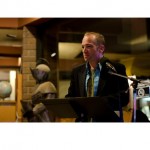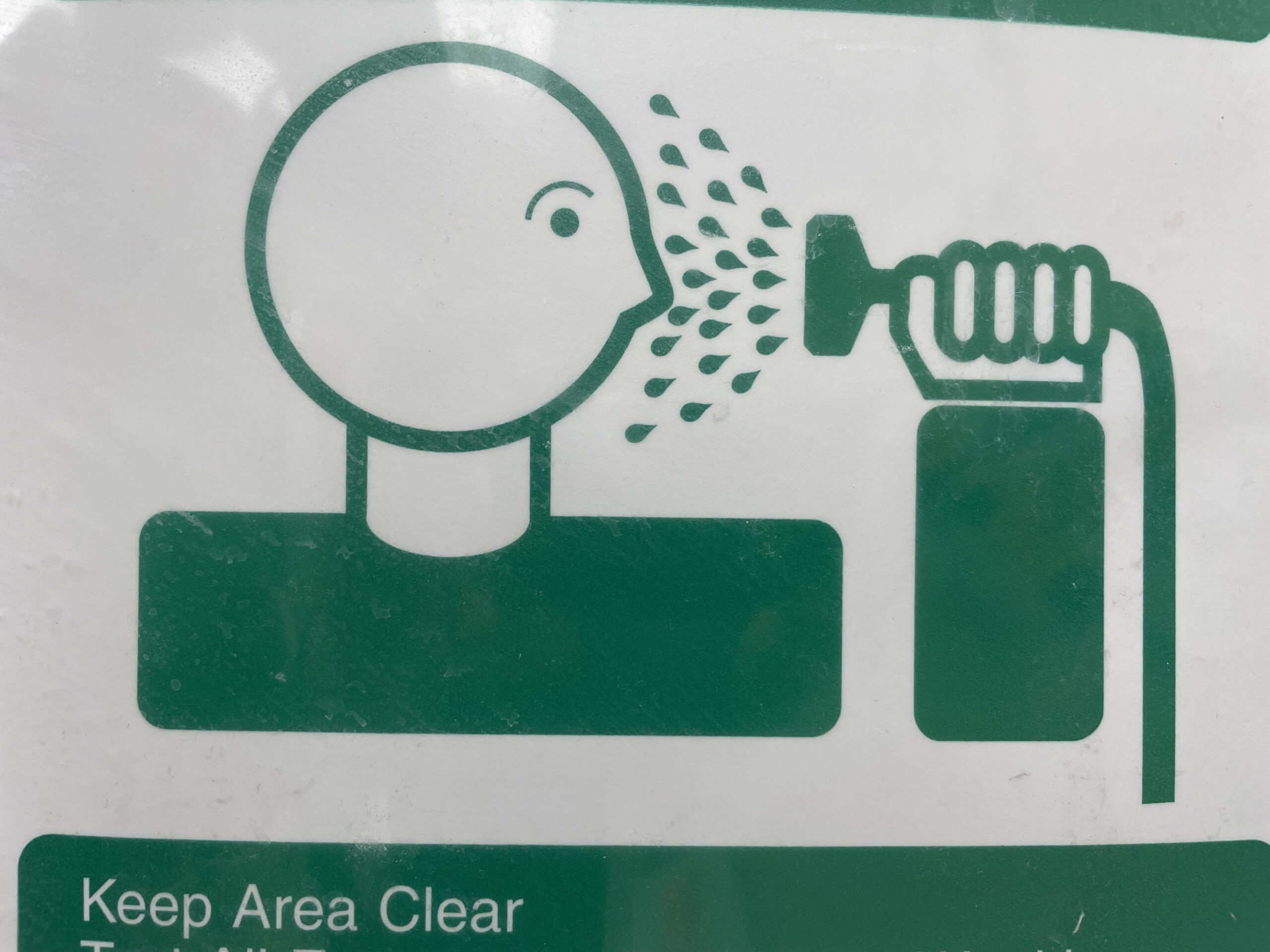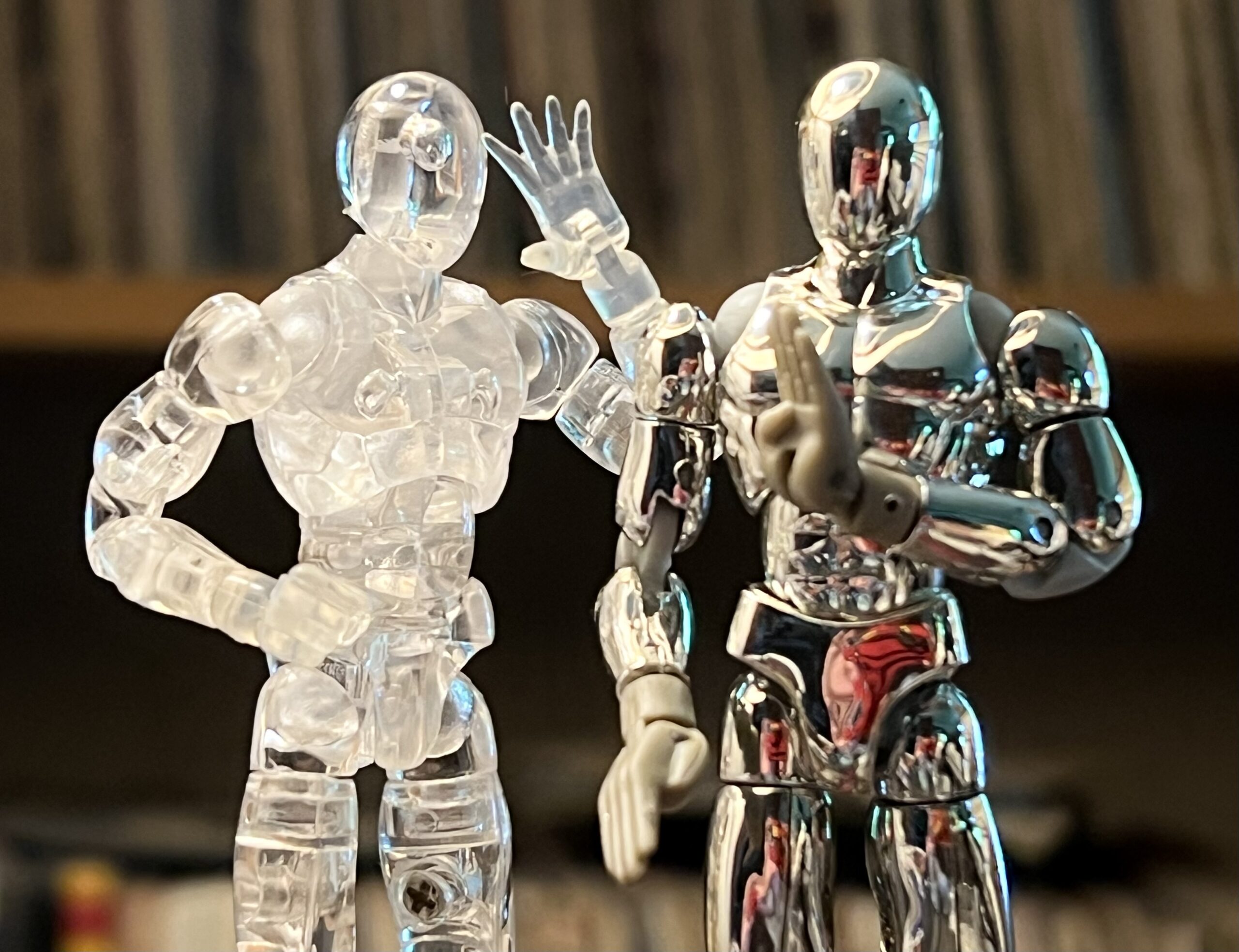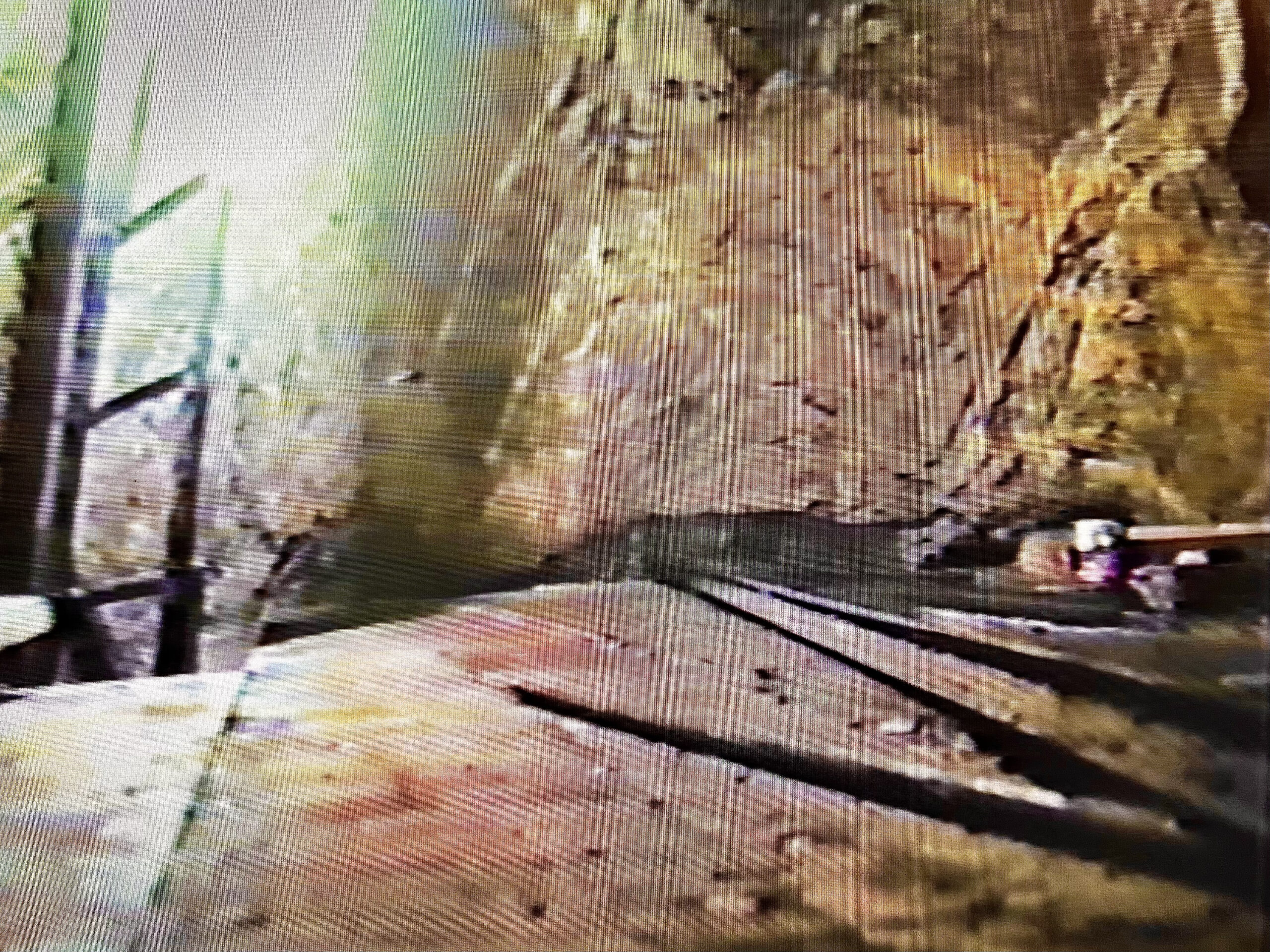LVII
There are stories we don’t tell, for whatever reason. Mostly
embarrassment, I’m thinking right now. Or,
more specifically, that then people wouldn’t like me,
or would have some conception of me that I
don’t want them to have, accurate or not. So I’m feeling today
that, as I’m being non-fictional and truthful,
or at least because I’m forcing myself
to write without making anything up,
that I should at least nod to all the stories
I’m not telling.
Because that would be telling, wouldn’t it?
A moment of silence then
where my stories that are not being told
can mingle with yours. Let’s drive across the state.
Let’s go over the river. Let’s run off
into the woods with them. And what is a life anyway
if not partially hidden? Is any of this a life? And what of the stories
we would tell, but we forget? Like the time I just remembered
when I fell backward into an empty fish tank
that was lying on its side, breaking out the glass,
wedging myself into the jagged edges. When I pulled myself out
I could feel the blood going down my legs, but
I couldn’t see it. No one was home. I was
a teenager. By the time I got to our neighbor’s house (who
was a cop), I was woozy with
thinking about it. And I haven’t thought about it since. It all blends
into the soup of our inner lives . . .
The only time I ever went to a psychoanalyst
was because there was this free consultation offer. The only thing he said,
at the end of the 45 minutes, was that
I had a lot of stuff we could work on. There you are. And so what
do we do with them, these stories we don’t tell? I admit
that I have few answers, if any. I got a tattoo once. I’d do it again,
even though I nearly fainted. I’m not much good with needles.
Most all of these things we’ve done, if the circumstances
were right, we’d do again, I’ve heard. So thank you.
It feels good to get that off my chest.
LVIII
Richard’s back, talking about Easy Riders and Raging Bulls,
a documentary of the auteur period
in American film, and how it closes with the shot from the end
of Raging Bull, where DeNiro’s face is hamburger
and he says, “You never got me down.” I’m struck,
now that he’s left, how we all cling to ways of doing things
because they tell us where we are, or where we were
when we were our most happy, like I’ve heard we do
with hairstyles. I don’t know if I really
believe that, but there is a way that we cling to things
long after we should’ve stopped. What is it
that makes us do that? And then we pretend it’s a virtue.
Maybe I’m doing it now. That’s one
of my greatest fears, that I’ll wake up one morning
and realize I’ve been clinging to something that’s long gone,
and now we’re both ghosts. But then there’s this other
story, the story of perseverance. We all want to be that
person, the one who keeps going, who at long last
is shown to have been right all along. The way they say
honesty is a virtue. But still there’s as much weight put on playing
by their rules, where in Rome, you do as the Romans do.
In fourth grade, maybe third, several of us were passing
back and forth a paper on which we were writing
every bad word we could think up. The usual words, yes,
but including such flights of fancy as “Flesh Gordon”
and “Mike Hunt.” When we were inevitably caught,
we told the teacher that Danny Moynihan, the student
who tormented us at recess, our bully, Danny, gave it to us.
LIX
Most things aren’t necessary. So? Are we
to impoverish ourselves to make the point? And to
whom are we making it? We all go our various ways
after high school, separated into what Nancy calls
“money attractors” and “money repellers.” A couple decades
later, we check in, most of us. First, when we’re
around 38, and then, after that, whenever. Lance
raises dogs and has worked in the security field, and now
does something in the field of law (attractor). Brendan
is in a band, still, between Kansas City and various points
in Colorado (repeller). My brother’s in Chicago,
working for Kraft (attractor). Jackie is still in New York,
as is most everyone else I knew then . . .
If we could sit in several places at once, as our particles
are apparently able to do, I’m thinking right now, we’d know
better how to communicate with each other. Some
better version of waving as we pass on our way to find our box
of rain checks. What if we were to list them, our rain checks,
and find the ones to cash? This time it’s, “Yes,
I’ll do that! I’ll go!” How different would any of us
be? Or are we destined to be what we are? You gotta
have faith, George Michael sang, but really, faith
is the wind that blows from all directions at once.
I remember Watergate as bored looking men on TV
preempting reruns of Voyage to the Bottom of the Sea. We were between
houses at the time, staying in an apartment, where the landlady
had a granddaughter who she wanted to have play with me, but not
my brother. We both kind of knew why, but not enough to say—
especially then, when none of us, including him, knew exactly
what race he was. He’s always ignored it, and I’ve
always been a little jealous, which is another trick of adoption.
I also remember gluing a popsicle stick to my upper lip,
as a moustache. It burned. And now I’m reading that we all
have invisible lives that encircle us, some imagined thing that defines us
in some way, and I’m thinking it’s more true to think that there’s nothing
invisible about us. This is what we are. Look around. We stagger
because we stagger. It’s where we get to.
LX
Improving our circumstances has been a stalled idea
for some time now. I grew up in the era of domes
and visions and the imminent arrival of
a new world, and instead we got the 1980s. John Cage
once proposed a Summit Lecture Series
on War, where all the national leaders would individually
address the world on why it’s important
we kill people. It was a great critique until
they realized he was serious, that he thought there
might be something to know, something
to find out, which is why, I suppose, it’s the
academics and artists who are always the first to go.
World betterment—even saying it sounds like
an advertisement for sometime around 1968, where
the women might still come and go, conceivably
talking of Michelangelo. Michael and Richard
were talking about that couplet of T. S. Eliot’s this afternoon,
how it’s being thought about again in the introduction
to a new anthology, and for a second I remembered
an idea I had one time of how each of us has
internal and external lives behind two different walls,
like the interior and exterior of a hat, and that
no one can ever see both at the same time, unless
one were to spin the hat on its brim, forming a blurry oval.
That probably doesn’t connect to anything, I’m thinking
right now, a few hours later. But Bob the Builder is playing
on the TV, and my son’s watching it, and he’s named
Eliot with the “E-L-I-O-T” spelling. Bob has just dropped
his construction helmet, and I thought how
they’re able to build whatever future they want on TV,
which is another reason not to like it, the way artists
are often not liked for their alternate worlds, as the universe
constantly contains everything in it, so that no matter
how big or how small it is, it’s always the same size.
LXI
I want a house with a lot of windows, and all the windows
stained glass. And to live in a place
with a lot of sun. Piles and piles of sun. Last night
the TV went to static, and Natalie, one day
past her eighth birthday, said, “I LOVE
this channel!” and then we spent a few minutes
making things up about trucks and people
playing in the park, and I mentioned my house
on the hill with stained glass. Eliot, still three, said
he could see it, and that it looked red.
Twenty years ago I was living with a woman
who had a son, about three. We lived in a trailer park,
and I had to pick up food for them
from the Baptist church food bank. She was
too embarrassed, she said. I’ve heard she lives
in Alabama now, and works for the postal service. Back then
one could still work on cars. These days it’s all
indicator lights and schematics. But back then,
I spent a little time every Saturday putting more
bailing wire around the drive train.
The house I’m living in now has a lot of windows,
but not many on the west side, which would look
great through stained glass. I have one stained glass star
in the west side, in a little window over our stairwell.
When the light hits it just right,
I like to stand in it for a moment.
“The sun is full of candy,” Natalie said yesterday.
She knows better, she’s studied the sun in school,
but we’re both happier this way, making these things
real, because someday we won’t be.
LXII
Is your life the series of events
or is it something else? Maybe this is another of those
“are you a dog person or a cat person” kind of things—
but I’ve always been dogged by the whole “sins of the heart”
and “state of grace” economy on one side, and the
“fake it ’till you make it” on the other. I’m sorry. I mean it.
I feel this need to apologize, but I’m going to have to side
with the exterior on this one, walking by the houses, seeing the people
walking in and out. First warm day after a series
of cold days. Guessing at intentions and inner lives
has always left me standing on train platforms late at night,
in winter, inappropriately dressed.
Looking at us this way, then, the “keep your enemies closer” thing
would seem to be the logic behind most marriages,
and most of everything else as well. We’re in our cars,
and it reminds me of driving a guy from work to his AA meeting,
1987 or 8—or maybe it was his NA meeting—because I promised
I would, and they kind of brought me into it, and I felt too something,
not really embarrassed, but I didn’t want to seem
like I was trying to look superior or aloof, so I went along with it—
I even went back a second time when the guy
whose name I don’t remember, asked for a ride again. “It’s OK, everyone
has problems,” the leader of the meeting said. And then a few years ago
I was out with Roger having a beer, watching a game
at Carson’s Bar & Grill, when a friend of his came in and ducked back out
when he saw us. Roger couldn’t make any sense of it. They
were friends, he said. And the guy was going through a
tough time. Why wouldn’t he return Roger’s calls? Why
withdraw like this? And then a year or so later, Roger got his
terminal prognosis and stopped returning my calls. I
had to find out he left town by seeing his car gone.
So when I look out at the world and am humbled
by all the ways the trees and rivers
pass our understanding, I can maybe take a bit of solace
in the fact that we do a pretty good job passing our understanding
as well. Still, we have the houses and buildings, the trees
and train schedules. It’s not nothing. As you have to try
to understand the things you cannot destroy.
LXIII
Why not love pictures? Each time they come back,
they come back in exactly the same way, and sometimes
quite unexpectedly from a box. What’s not
to love about that? And then the ones that are unattributed,
like the ones Rosie brought in once
from a trunk she found in the basement
of her duplex. Two women in the 1940s or maybe early 50s
in front of a tract home, and the younger one, pretty
with dark hair and dark lips, looking at the camera
with a “please hurry up and get me out of here” look,
so that forever she’ll be wanting to get out from this place
she’s certainly gotten out of by now.
And still she gets to be pretty, and the shot, a little
square, gets to be pretty as well, with the scalloped
edges. The way memory is mostly collective, as we practice it
in front of people who tell it back to us
or have it place itself around these pictures, and my baby
pictures as well, inscribed with someone’s handwriting I’ve never met,
“Marty 11 mos.” So I got to be a Marty for a few years.
I remember it the way I can feel sometimes that I remember
being on the moon, my feet in the baby powder of it, the flag
with the wire top that doesn’t blow.
The other day I saw a picture of the band
I used to be in twenty years ago,
and remembered we played a strip club on accident once,
a few days before it was taken,
as our drummer knew a drummer who said we could play this club,
see, without telling us what kind of club it was, so
there I was singing Neil Young’s “Hey Hey, My My (Into the Black)”
while a mostly naked woman danced beside me
around a pole. I’m glad there are no pictures of that moment,
as all of us seemed to be on a race
to find who could be the most not there.
LXIV
When one studies math, they say that what’s important
is not the algorithm per se, but the logic
behind it. It’s never what it is. Or it is always what it is
but what it is isn’t what one might be thinking
it is. Like being useful, how there are many ways
to be useful that aren’t about carrying boxes. Mark
wrote to tell me that in deeper ways I probably am, and have been, useful
to many persons. “Probably mainly in good ways,” he said,
“though there is also the possibility of having been useful to someone
in a bad way (as when we speak of having been used
by someone).” And how, then, that might have even turned out
to be useful, who knows. I have this vision of myself
bumbling through my life, suddenly, in a sort of “Pippa Passes” way,
where all manner of good befalls the people I accidentally cut off
on the freeway. I just looked up “Pippa Passes” and found
it’s not just the drama by Browning, but also the name of a city
in Knott County, Kentucky, where possibly a lot of good luck resides.
What bad relationship have I been in that I can possibly
test this out on? Maybe we could make a few calls, ask about my
cruelties and the cruelties done to me. Sit
and think awhile. I suppose the worst thing I can think of right now
is how I just found out last spring that the child my first wife said
was mine, and then said wasn’t, turns out to have been mine
after all. He’s twenty-five now. When he contacted me,
I think he was prepared for me to be hostile
or to try to ignore him. Mostly I was sad. Maybe that’s
a kind of being useful, where all we could do was talk.
I wanted a girl to talk to me once when I was twenty-five,
and she wouldn’t. I even went by her work, as she was a checkout girl
at the HEB in New Braunfels, Texas. She only looked at me
and rang up my groceries. Maybe that was useful. Maybe
it’s all been useful. How a couple years after that, I got fired
from my job at the radio station there, and they took my keys
and escorted me to my car, so I left. And I almost felt important,
knowing they’d have to change the transmitter security codes,
and how I wondered for weeks if they did. So then I went
to graduate school. All useful, how all I have
of my own birth-father is a picture that I ripped in half once
for no reason I can remember. Such things are useful
in the “everything I’ve been through
has made me who I am today” way, which leads to
people not wanting to take their medications, especially people
with psychological disorders, afraid it will change them. Change. Change.
But mostly, we’re not in charge of whether we’re useful
to others or not. (Was I? Wasn’t I?) Maybe “useful” isn’t
a good enough word for it. But then “helpful”
isn’t much better. That’s the kicker. Anyone can come back later
to say some little kindness of mine or yours
saved them or nearly did them in, or that some thoughtlessness—
though they didn’t recognize it at the time—saved them . . .
or nearly did them in. As in lifting that box, or donating blood,
or that card, or telling them to go fuck themselves. Our
cruelties, followed by some sketchy philosophy.
But still, who’s to say? It all becomes part of the mix, so that
however you’re doing right now redefines everything
you’ve been through. The guy that picked me up in his white Econoline van
when I was hitch-hiking, who tried to get me to take my
clothes off, and who was a lot bigger that I was,
now, looking around, I guess he helped make me who I am. I got a chance
to practice looking calm and figuring a way out—which,
that time, consisted of me saying how great that sounded,
but that my dorm roommate would, I’m sure, like to join us,
so let me go in and get him, and of course
never coming back. Ian Hunter sings, “I ain’t no chain,
I’m just a link . . .” as a sort of mathematics of accretion,
though there’s also subtraction and the continuing question
whether math was invented or discovered.
So there at the end, what’s the suicide to say
other than everything’s all been bad, when it becomes too much,
though obviously everything’s not always been bad, or all cruel, so that,
climbing the bridge rigging, say, preparing to throw herself
into the parking lot, we know she’s going through something internal
more than external. What’s the difference, though, when all we have
is ourselves? There’s the river below. It’s night. It’s
1983, and I’m trying not to panic, and then it’s 2009, and in the paper
a woman is looking down from the high wire, filling me
with that fear I get in high places, that I could just step into the air.
LXV
Tonight’s program is Clandestinophilia, insisting
we make cookies. It’s LXV, the retirement-age. And here I am
nearly a year after first writing this sequence, tossing something in,
as the poem that was here has been merged with LXIV (“Sixty-four
and there’s so much more” as Neil Young says.). The lake
continues to ripple. The solar system runs over us
and we take no notice. Time may well be a hallucination, I just read
in Scientific American, but if so, the question is why then
is it such a persistent hallucination? My uncle survived the air crash,
though his recovery continues. Mark died. Terri had everyone over
a few weeks after, and we had a nice time. I played his guitar.
You never know what you’re going to find. Once, when I was
delivering newspapers, a guy flagged me down,
and then dove into the car through the passenger side window,
finding, when he did, that the car was full of newspapers. He
was terribly drunk, demanding I drive him to the hospital,
as he practically swam around inside my car, so I did. The only other time
someone’s done something like that was a few days ago
in Puerto Rico, when a guy jumped on the trunk, directing us through
a tight tunnel to where we could park for “seven dollars
and whatever else you want to add for tip.” We thought for a moment
he was leading us to some sort of robbery, it was all so odd. Turns out
we parked in a graveyard at the outskirts of the Castillo de San Felipe
del Morro, at the edge of a cliff overlooking the ocean.
They keep saying Social Security won’t be there when I
get to retirement age, and they say this while I continue
to pay into it. I suppose we’re all supposed to die young. That would
solve things. I thought I was going to die, briefly,
when I was in the floodwater in Texas twenty years ago, and then again
a few years ago when I went in for the MRI, and I probably looked
like I was capable of killing someone
the time my alternator adjustment rod broke at four a.m.
while I was on the paper route, and I wedged it back up
with an axe I just happened to have in my trunk. The way I looked
driving down the roads of San Marcos, swerving back and forth,
throwing newspapers out the windows, the axe jutting from under the hood,
the head off to the side like a flag that means you harm.

John Gallaher is the author of the books of poetry Gentlemen in Turbans, Ladies in Cauls, The Little Book of Guesses, and Map of the Folded World as well as the free online chapbook, Guidebook, from Blue Hour Press, and, with the poet G.C. Waldrep Your Father on the Train of Ghosts, BOA, 2011. He’s currently editing, with the poet Laura Boss, a selected poems of Michael Benedikt. His next book will be the book-length essay-poem In a Landscape, coming out in 2015 from BOA. Other than that, he’s co-editor of The Laurel Review and GreenTower Press.



